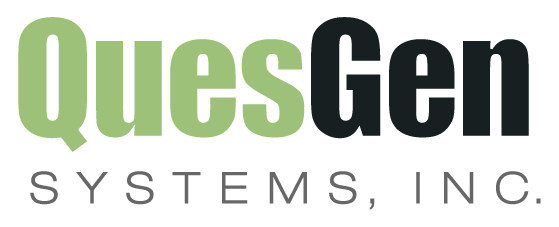Brain Health and TBI Research
Resources for Investigators with a focus on TBI / brain health research
The QuesGen platform enables rapid solution development for a wide variety of Clinical Research Solutions. With a focus on TBI and Brain Health Research, QuesGen has worked with a significant number of Investigators studying Traumatic Brain Injury (TBI) and other neurological functions. Having developed a significant library of electronic Case Report Forms (eCRFs) and neurocognitive assessments, quick and seamless setup and deployment is possible.
Comprehensive TBI Data Structure
FITBIR (Federal Interagency Traumatic Brain Injury Repository) Integration
Academic and Commercial Research
QuesGen has grown up in academia and has recently grown into more clinical research as well. QuesGen is currently being used in over 100 Hospitals around the world.
RedCap
Redcap is a widely used tool that many investigators have run into challenges with when running studies involving complex data structures. If you’re in a position in which you’ve started your study using RedCap, we have a “RedCap loader” in which we can seamlessly move you over to the QuesGen platform.
TBI Research best practices for data management
For over 10 years, QuesGen has had a significant focus on Brain Health research but more specifically, TBI Research. We have supported some of the leading TBI research studies including but not limited to TRACK-TBI, The NCAA•DOD CARE Consortium, and CENTER-TBI.
- TRACK-TBI
Prospective observational study in 18 level-one trauma centers across the US including over 3,000 participants. - Psyche Analytics
An assessment of populations at-risk of mental health issues and evaluating treatments that can aid in overall optimal health management
- DICTA
A study looking at automated methods of evaluating reviewer assessment and predicting an intracranial mass effect - DOERS
A study of stroke and decision-making around obtaining CT - NICoE Imaging Study
A study of neuroimaging assessment and predicting the functional capabilities of complex mild traumatic brain injury
- CARE
A large-scale study of over 50,000 college athletes and service cadets tracking them through concussions and their return to exercise and competition - CENTER-TBI
80+ centers in 20 countries across Europe, Over 27,500 participants - CENTER-TBI – China
52 centers in China, Over 13,000 participants
- OZ Enter
2 centers in Australia, 198 Participants - CINTER-TBI
2 centers in India, Over 4,900 Participants - RECODE
A 30-patient study of a treatment for Alzheimer’s Disease and Neurocognitive decline
What People Are Saying
Odette Harris
MD, MPH, Stanford
Uzma Samadani
MD, PhD Associate Professor, Department of Neurosurgery – University of Minnesota
Andrew Maas
Emeritus Professor of Neurosurgery at Antwerp University Hospital
Our complex study model required partnering with a company that could provide a data collection with a dedicated study-specific eCRF with stratum-specific workflows which QuesGen Systems was able to provide.
David Menon
MD, Ph.D, Professor of Anesthesia at the University of Cambridge
